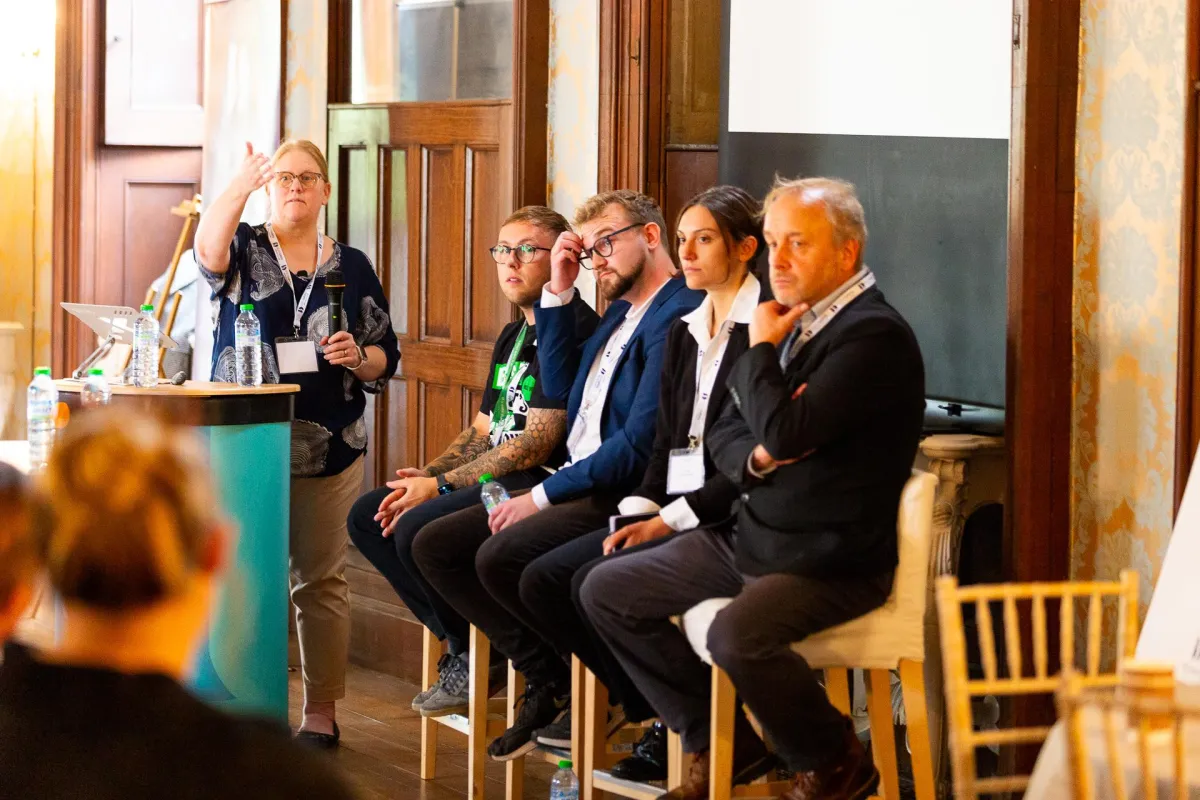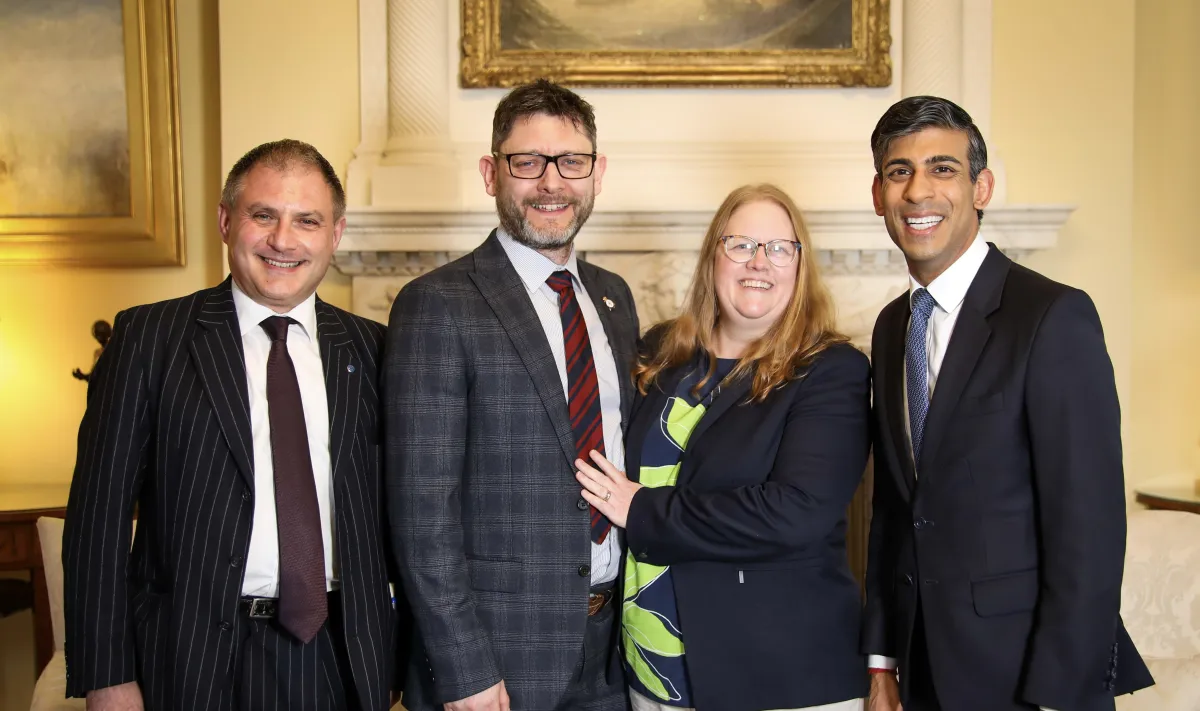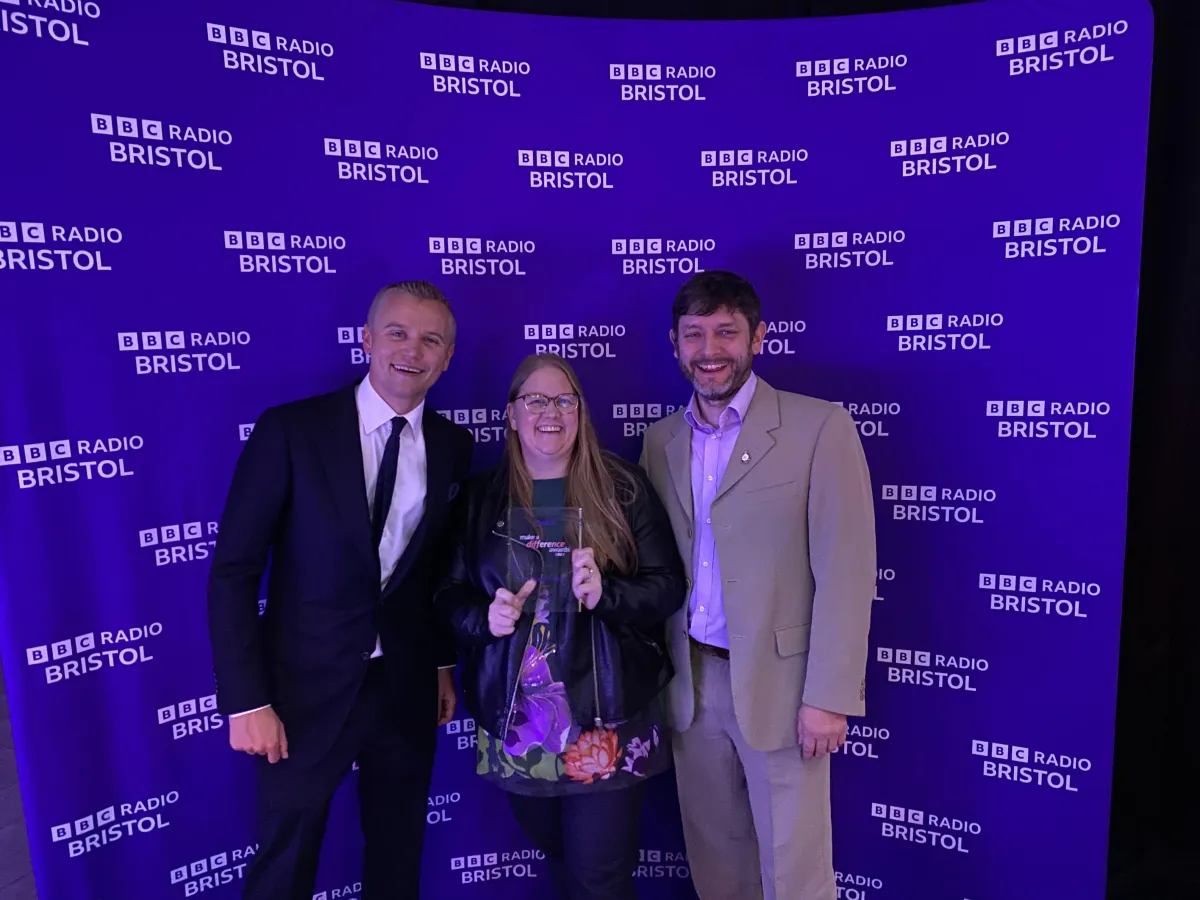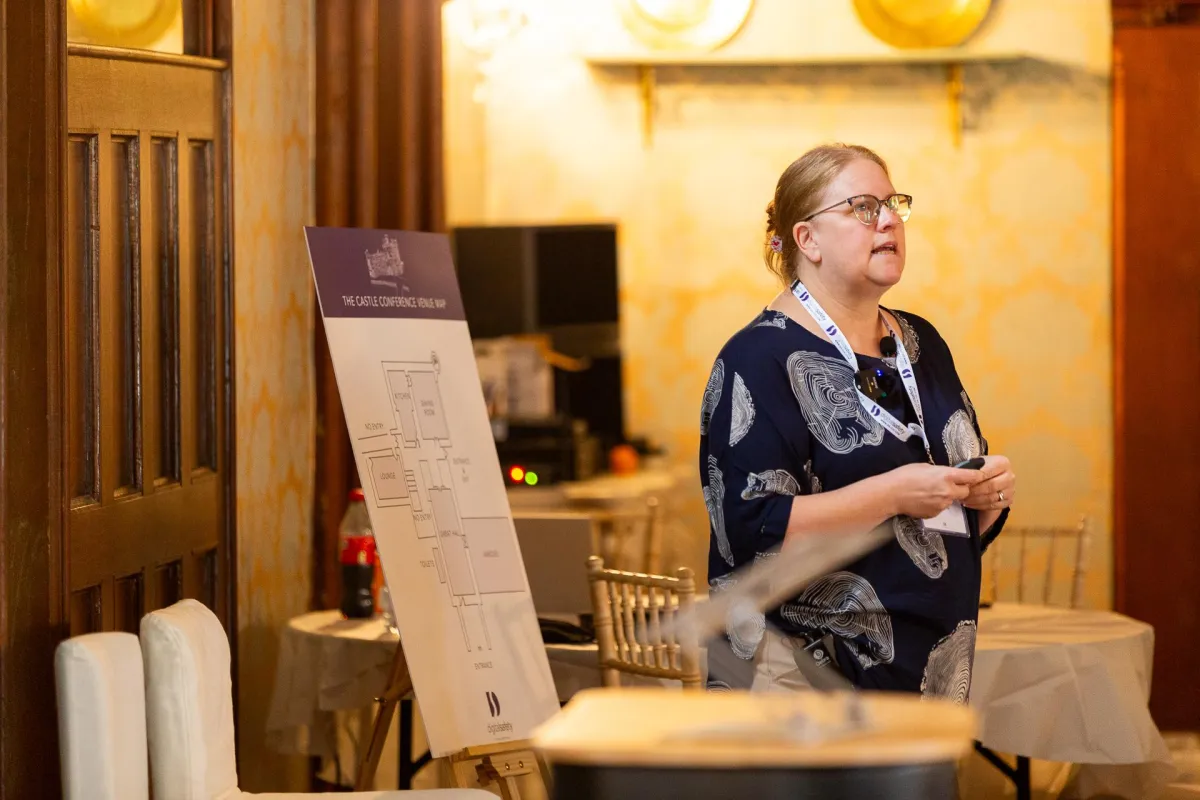
Lucy Smith
Speaker, Facilitator, Compare
Inspiring audiences & making a difference
Neurodiversity | Managing Change | Resilience
Life Stories | Social Enterprise
Authentic storytelling that makes a difference
Hi, I am Lucy!
Some people call me the "pocket rocket". I think that is because I have passion and energy to bring out the best in an audience.
I have been working with audiences for almost 25 years in many guises - Lecturer, radio presenter, drama teacher, children's entertainer (I have been a professional fairy) facilitator, compare and speaker.
As a speaker I believe there has to be some substance behind us and I sure have that too. Not being able to settle and always saying "YES" to opportunities has led to a whole lot of experience that informs my work and my presentations.
At my core I am a purpose led social entrepreneur who loves to start a conversation about topics that matter.
I start those conversations with stories some that will surprise and some that will inspire. I talk about some difficult stuff and combine my unique expertise and knowledge.
Relatable, authentic and thought provoking
Lucy x

Neurodiversity
What is your perspective?
I come from a range of different perspectives when I talk about neurodiversity. From pedagogy, organisation development and leadership, research, personal and family and real lived experience. With a a strengths based approach I talk positively and with passion about change and neurodiversity in work, school and community.
I engage audiences to get them thinking and start conversations that will make and does make a lasting difference.
Change Management
Let me meet you at your
bus-stop
In the world of change management, it's not about imposing a new route; it's about understanding where you're starting from.
I have spent a decade working with senior leaders in transformational change where I have learned that change is often an individual journey and we will all join that journey from a different bus-stop.
I combine theory with reality and always have an eye on the future.
Life Stories
The secret change agent
A wealth of stories based on real lived experience with plenty of lessons for the future. Spilling some my secrets on here would be giving away some of my best work which you will want to hear straight from the source.
Oh, okay, let's just say I can talk about resilience, royalty, and some really fun stuff from a career in international law enforcement,
Social Enterprise
Making a difference - the torch that lights the stars
Lighting people up to make sustainable change happen is a big part of what I do. From setting up a community radio station to developing an innovative and groundbreaking conference around digital wellbeing and young people.
I talk the talk and walk the walk when it comes to social enterprise, from grass roots to engagement at the highest levels right up to Downing Street.
What do other people say?
Don't take it from me, here is what others say about working with me.
Listen online
Podcasts, interviews and YouTube
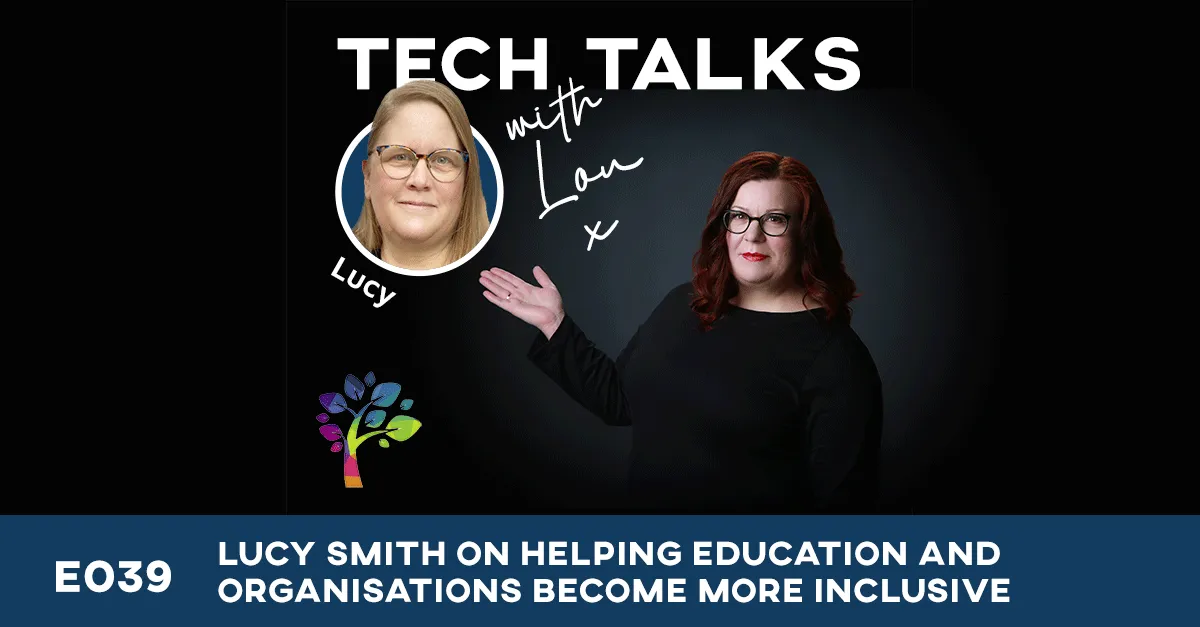
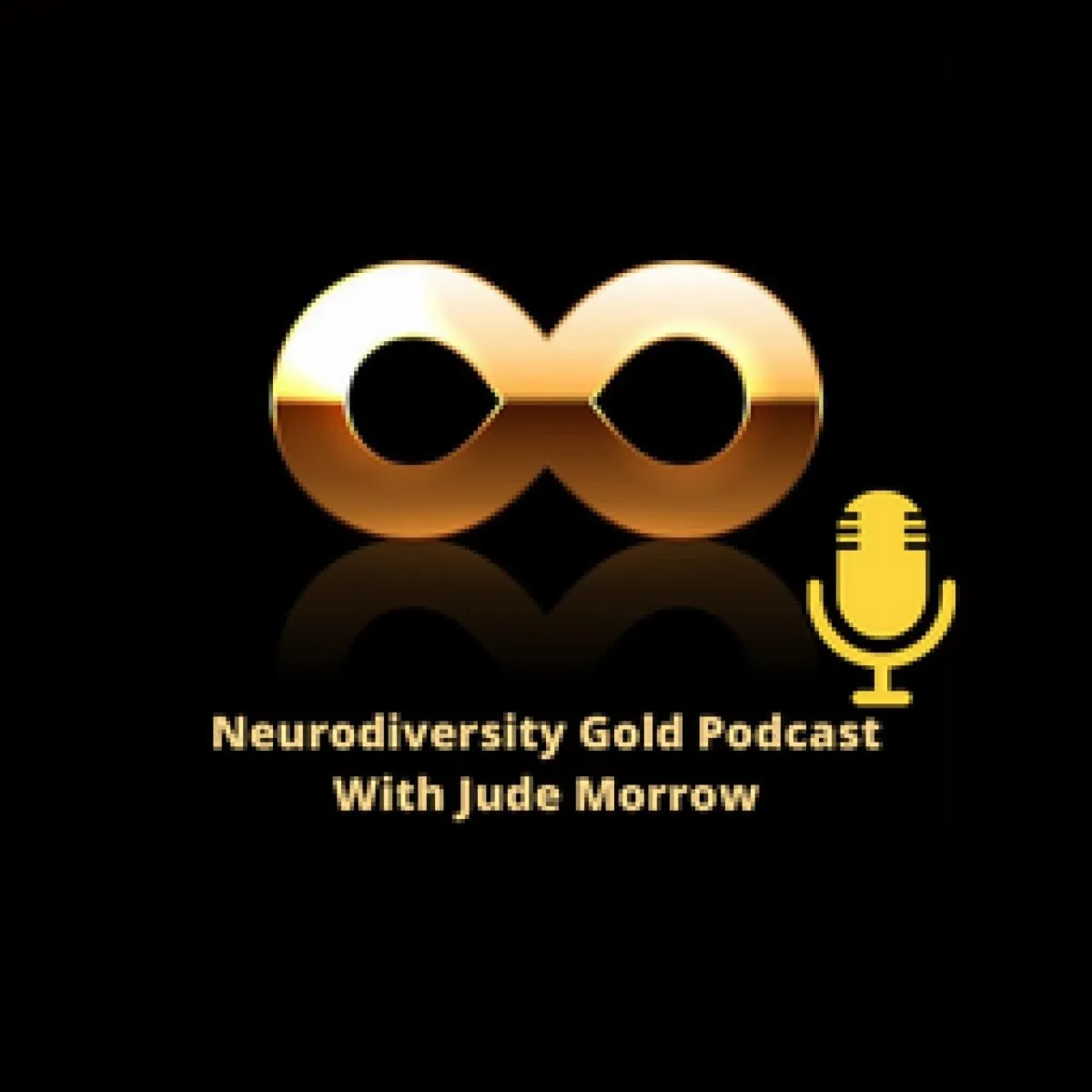
Read more
The blog
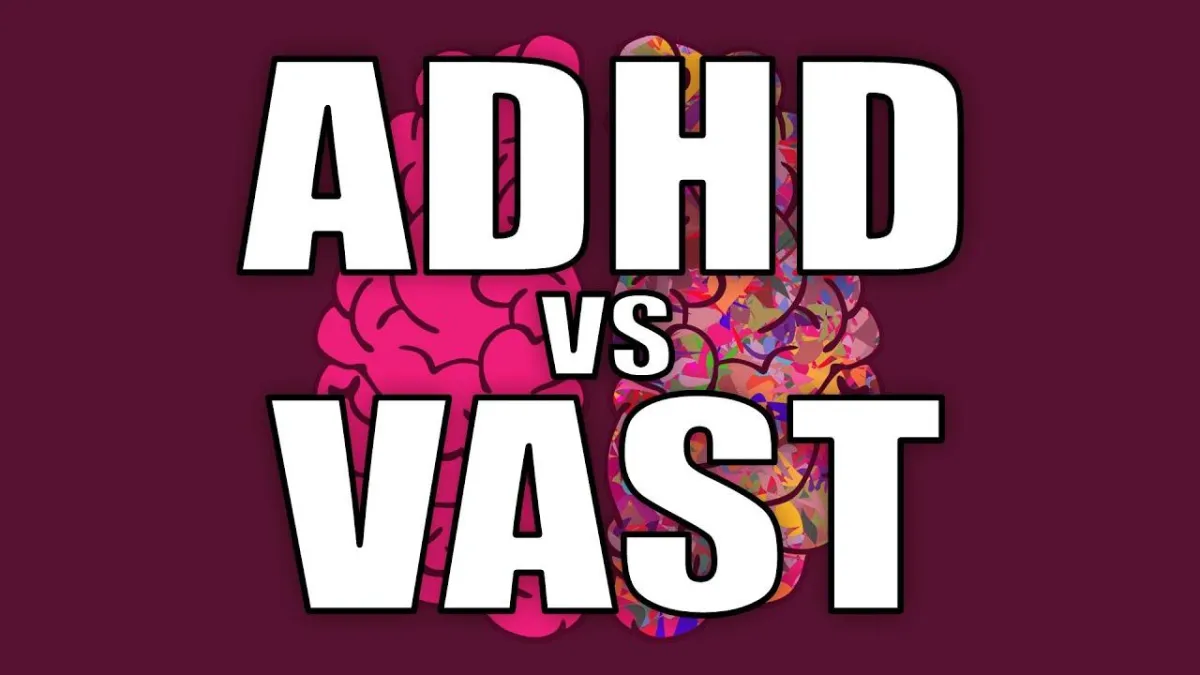
VAST Vs ADHD
Living with ADHD vs Living in Distraction: A New Lens on Focus
“I thought I might have ADHD before I started working here (Inclusive Change) - but now I know I definitely don’t.”
That reflection came from a team member during a recent conversation and it’s stuck with us - not because it dismissed the challenges of attention struggles, but because it highlighted something deeper: how easy it is to conflate everyday distraction with a neurodevelopmental condition, and how profoundly different the experience can be for those living with ADHD.
In our fast-paced, hyperconnected world, it’s no wonder so many people feel overwhelmed, unfocused, and mentally scattered. These experiences are real and increasingly common. BUT they don’t always mean someone has ADHD. Enter VAST: Variable Attention Stimulus Trait, a concept introduced by Dr. Edward Hallowell to describe the modern attention challenges many people face in environments flooded with stimuli.
Understanding VAST vs. ADHD
While ADHD (Attention-Deficit/Hyperactivity Disorder) is a well-recognised neurodevelopmental condition with a strong genetic basis, VAST - or Variable Attention Stimulus Trait - is a newer concept introduced by psychiatrist Dr. Edward Hallowell. It’s not a medical diagnosis, but rather a helpful framework to describe the scattered, foggy mental state many people experience in response to the digital and sensory overload of modern life.
VAST (Variable Attention Stimulus Trait), a concept proposed by Dr. Edward Hallowell, a psychiatrist who specialises in ADHD.
VAST is not a formal medical diagnosis but rather a term used to describe the increasing difficulty many people face in maintaining attention due to the overwhelming amount of stimuli in the modern world—such as constant notifications, social media, and fast-paced information overload.
How VAST Differs from ADHD
• Not a medical condition: Unlike ADHD, which is a recognised neurodevelopmental condition, VAST is more of a descriptive term for modern attention challenges.
• More situational: People with VAST may struggle with focus and impulse control due to environmental factors rather than an inherent neurological difference.
• Influenced by technology: VAST is largely driven by the demands of modern life - high-speed digital communication, endless choices, and constant multitasking.
Symptoms or Experiences of VAST
• Struggling to focus in over stimulating environments
• Feeling overwhelmed by too many tasks or options
• Difficulty in deep thinking due to constant interruptions
• Jumping between tasks without completing them
• Experiencing brain fog from digital overload
While ADHD is a lifelong neurodivergent condition with a strong genetic component, VAST is more about how modern life amplifies attention struggles for many people - whether or not they have ADHD.
Strategies for Managing VAST (Variable Attention Stimulus Trait)
Since VAST is largely influenced by the modern world’s constant stimuli, the key to managing it is reducing distractions, improving focus, and creating an intentional environment. Here are some practical strategies:
1. Reduce Digital Overload
• Control Notifications - Turn off non-essential notifications (emails, social media, news alerts).
• Batch Check Messages - Instead of checking your phone constantly, set specific times to check emails and social media.
• Use ‘Do Not Disturb’ Mode - Silence your phone when focusing on deep work.
2. Prioritise Deep Work & Focus
• The Pomodoro Technique - Work in focused 25-minute sprints with 5-minute breaks.
• Time Blocking - Set specific times for tasks rather than switching between them constantly.
• Use a ‘Focus Playlist’ - Listen to instrumental music or white noise to drown out distractions.
3. Reduce Sensory Overload
• Create a Distraction-Free Workspace - Declutter your desk and remove visual distractions.
• Manage Noise Levels - Use noise-cancelling headphones or work in a quieter environment.
• Adjust Lighting - Harsh lighting can contribute to overstimulation; softer, warm lighting can help.
4. Manage Information Overload
• Limit Multitasking - Focus on one task at a time instead of constantly switching.
• Use a Notes App or Journal - Write down ideas instead of trying to hold everything in your head.
• Set Boundaries for News & Social Media - Decide when and how long you will engage with digital content.
5. Build Routines to Support Attention
• Start & End Your Day with a Routine - Have structured habits that help you transition into and out of work.
• Set Up ‘Trigger Tasks’ - Small actions that tell your brain it’s time to focus (e.g., making tea before deep work).
• Break Large Tasks Into Small Steps - Reduces overwhelm and makes starting easier.
6. Move Your Body to Reset Attention
• Short Walks - Take a walk outside to clear your mind between tasks.
• Stretch or Do Breathing Exercises - Helps reduce stress and improve focus.
• Exercise Regularly - Physical activity increases dopamine and improves cognitive function.
7. Leverage External Tools
• Use Focus Apps - Apps like Forest, Freedom, or Cold Turkey block distractions.
• Try Physical Timers - A kitchen timer can help with time blocking.
• Use a Task Manager - Apps like Notion, Trello, or Todoist keep tasks organised.
8. Be Kind to Your Brain
• Get Enough Sleep - Sleep deprivation worsens attention issues.
• Stay Hydrated & Eat Well - Blood sugar crashes and dehydration can impact focus.
• Accept That Your Brain Works Differently - Instead of forcing yourself into rigid productivity norms, embrace what works for you.
Want to know more: get in touch [email protected]
Some of the Companies Inclusive Change Have Worked With


Inclusive Change Ltd
The Brightwell, Bradbury House
Wheatfield Drive
Bradley Stoke, Bristol
BS329DB
Reg no: 12412464
Copyright 2023 - Inclusive Change Ltd
VAT NO: 352 1564 17
ICO Reg: ZB081779
UK Register of Learning Providers: 10090652
Column Header
Lorem ipsum dolor sit amet consecetuer lorem ipsum
Organically grow the holistic world view of disruptive innovation
At the end of the day, going forward, a new normal that has evolved
Column Header
Lorem ipsum dolor sit amet consecetuer lorem ipsum
Organically grow the holistic world view of disruptive innovation
At the end of the day, going forward, a new normal that has evolved
Column Header
Lorem ipsum dolor sit amet consecetuer lorem ipsum
Organically grow the holistic world view of disruptive innovation
At the end of the day, going forward, a new normal that has evolved






